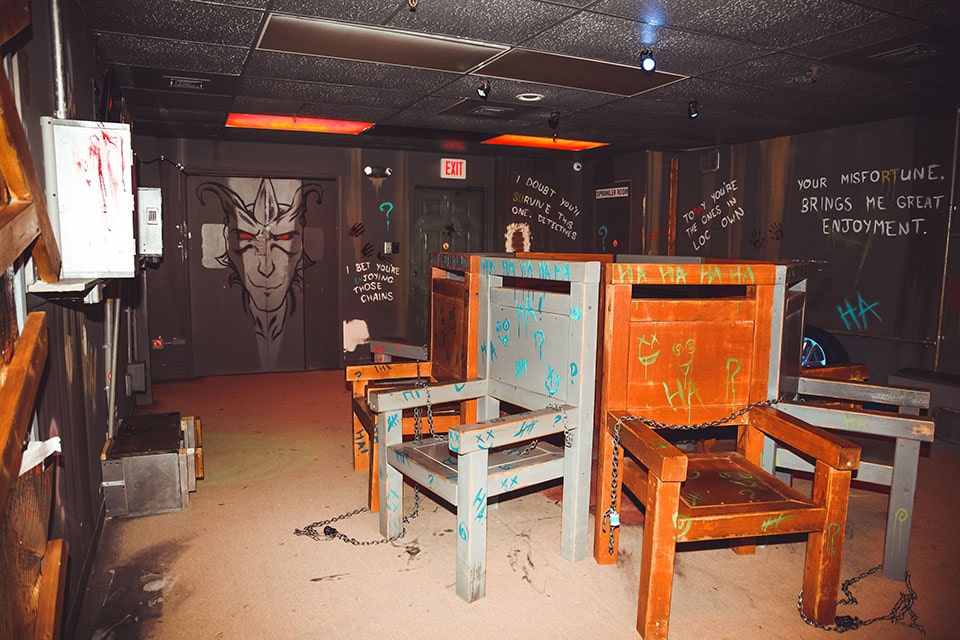Team Techniques: How to Work together Effectively in an Escape Space
Groups have to actively pay attention to each participant's understandings, designate duties that line up with individual strengths, and keep normal check-ins to make sure emphasis and prevent redundancy. By cultivating an environment that values cohesion and flexibility, groups can dramatically enhance their effectiveness and success prices.
Establish Clear Communication
To promote clear communication, it is important to mark a main point of contact for information circulation. This duty entails summing up searchings for and proposed techniques to ensure everyone continues to be on the very same web page. Additionally, taking on an organized strategy to conversations can avoid chaotic exchanges. As an example, short, focused updates from each employee can maintain the team notified without frustrating them with details.

Appoint Roles Purposefully
While clear communication sets the structure for reliable team effort, assigning duties tactically makes certain that each team participant's strengths are used successfully. In an escape area scenario, the time-sensitive and complex nature of challenges demands a well-organized method to task delegation. By determining and leveraging specific proficiencies, groups can enhance their analytical capabilities and improve overall performance.
First, evaluate the one-of-a-kind skills and qualities of each individual. Someone with an eager eye for information might stand out in discovering concealed objects, while a sensible thinker might be better fit to addressing problems. It's equally vital to have a leader who can look after development, take care of the timeline, and make crucial calls when necessary. This role typically needs solid business and interpersonal skills.
Second, ensure that roles are flexible and versatile. As new obstacles arise, the group has to have the ability to pivot, reapportioning tasks as required. This versatility assists maintain momentum and protects against bottlenecks that could take place because of stiff duty jobs.
Ultimately, a critical technique to duty project not just optimizes the toughness of each staff member however also promotes a cohesive environment, driving the team in the direction of a successful escape.
Utilize Diverse Skills
Identifying and taking advantage of the diverse abilities within your team can substantially boost your efficiency in a retreat room. Each team participant brings distinct strengths to the table, escape room and properly leveraging these abilities can expedite analytical and improve overall performance. A group participant with strong analytical skills might stand out at understanding complicated codes or patterns, while an additional with eager empirical capacities might swiftly detect hidden ideas that others might neglect.
Encourage team participants to articulate their insights and ideas quickly, making sure that all possible services are thought about. In addition, designating tasks that line up with each member's staminas can protect against bottlenecks and make certain that progression is continuous.
In addition, variety in abilities commonly equates to diversity in believing styles, which is vital in an escape space setting. While some challenges might call for logical thinking and precision, others could take advantage of creative and association of ideas. By acknowledging and leveraging this diversity, groups can resolve read more a more comprehensive variety of difficulties a lot more properly, consequently raising their chances of a successful retreat.
Manage Time Properly

Furthermore, avoid tunnel vision. If a problem is taking as well long, turn employee or proceed to another obstacle, returning later with fresh viewpoints. Communication is critical-- maintain everybody updated on resolved challenges and remaining tasks to avoid redundant initiatives.
Lastly, use any hints or hints moderately yet tactically - best escape room. Recognizing when to request aid link can save valuable time. By sticking to these time monitoring concepts, groups can dramatically enhance their opportunities of a successful and satisfying retreat space experience
Debrief and Mirror
Reflection is a crucial facet of group advancement and enhancement in the context of escape rooms. When the difficulty is completed, whether effectively or otherwise, it is vital for the group to take part in an organized debriefing session. This procedure allows team members to assess their performance, determine staminas, and pinpoint areas for renovation.
Start the debrief by discussing what went well. Highlight particular instances of effective communication, analytical, and partnership. Acknowledging these favorable habits strengthens them and urges their rep in future challenges.
Next, resolve the barriers encountered. Review minutes of confusion, miscommunication, or inadequate methods. Encourage an open and useful discussion where staff member can share their perspectives without concern of objection. This fosters a society of continuous renovation and learning.
Final Thought
In final thought, effective partnership in an escape area is based upon clear interaction, tactical role tasks, the efficient utilization of varied skills, and skilled time monitoring. Routine check-ins and structured debriefings are essential for keeping focus and fostering continuous enhancement. By developing a natural and adaptive team setting, the probability of efficiently addressing challenges and attaining the objective of escaping the area is dramatically enhanced. This method not just guarantees success but likewise advertises cumulative growth and understanding.
Comments on “Fun and Challenging Escape Room-- Plan Your Following Journey”